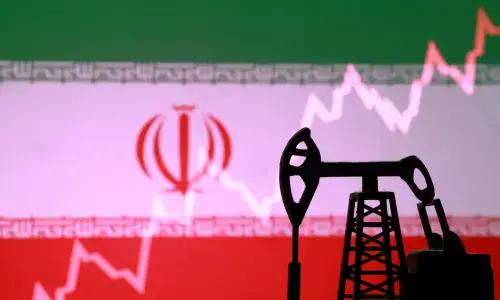The 7th National Finance Commission Award came about with a voluntary consensus and was based on political accommodations. However, the ongoing deliberations on the 9th NFC award are moving in a different direction.
One, the federal government skipped the 8th NFC and directly constituted the 9th NFC.
Two, Azad Jammu and Kashmir, Gilgit-Baltistan, and Fata have been added in the Terms of Reference (ToR) of the 9th NFC. The move has been strongly opposed by many experts and provinces on constitutional grounds.
Third, the NFC deliberations were first made conditional to the finalisation of the working groups’ report on the rationalisation of subsidies and grants. Then, the centre came out with the proposal of sharing grants and subsidies by the provincial governments instead of suggesting concrete measures to rationalise them.
While admitting that “AJK, GB and Fata are not part of the NFC,” it proposes around four percentage of the gross Divisible Pool be reserved for meeting expenditures/grants for these regional entities.
The federal proposals are contrary to the commitment made by the government to the Sustainable Development Goals and undermine its commitment to its own Vision 2025
The report also suggests allocation of an additional 3pc from the gross Divisible Pool to meet internal and external security challenges, mainly related to security arrangements of the CPEC projects which are marked by provincial grievances.
Together all these proposals amount to 7pc of the gross divisible pool.
The federal government, instead of rationalising its own expenditures, wants to deprive the provincial governments of their constitutionally protected share. So far Punjab, Sindh and Khyber Pakhtunkhwa have strongly opposed these proposals.
The federal proposals are contrary to the commitment made by the government to the Sustainable Development Goals and undermine its commitment to its own Vision 2025, duly endorsed by the chief ministers of four provinces.
The provision of SDG-related services largely comes under the domain of provincial governments since most of the 169 targets set in the SDGs require greater provincial resources. Proposing a reduction in provincial shares would have a negative implication in achieving SDGs, and violate the spirit of the 7th NFC award.
A study by SPDC (2014) indicates that as a result of the 7th NFC award, the social sector expenditures in general and provincial social sector expenditures in particular increased as a percentage of GDP.
Despite the growing security and public safety-related budget, education now is among the top priorities of the provincial governments. Initially, an increase in the education budget largely translated in a growing unit cost of education without much success in bringing out-of-school children to school.
Thereafter, provincial governments initiated various measures to deal with ghost teachers and address supply side bottlenecks. For instance, schools in Sindh, Punjab and Khyber Pakhtunkhwa have biometric systems for teachers’ attendance. While this alone is not enough, it is an important step in the right direction.
Similar other steps are required to ensure the country’s much neglected social development.
The growing federal budget deficit is the main reason behind the proposals to cut provincial share in the NFC, which, otherwise, is protected by the constitution. The FBR has failed to collect resources in line with the 7th NFC award projections while the federal government is unable to reduce overspending.
Social development will receive a setback if the centre has its way. And there is a danger that such inappropriate processes will likely continue unchecked. GST on goods can be sighted as an example that was temporarily taken by the federal government in 1948 and has never returned back to the provinces.
Published in Dawn, Business & Finance weekly, February 20th, 2017

































